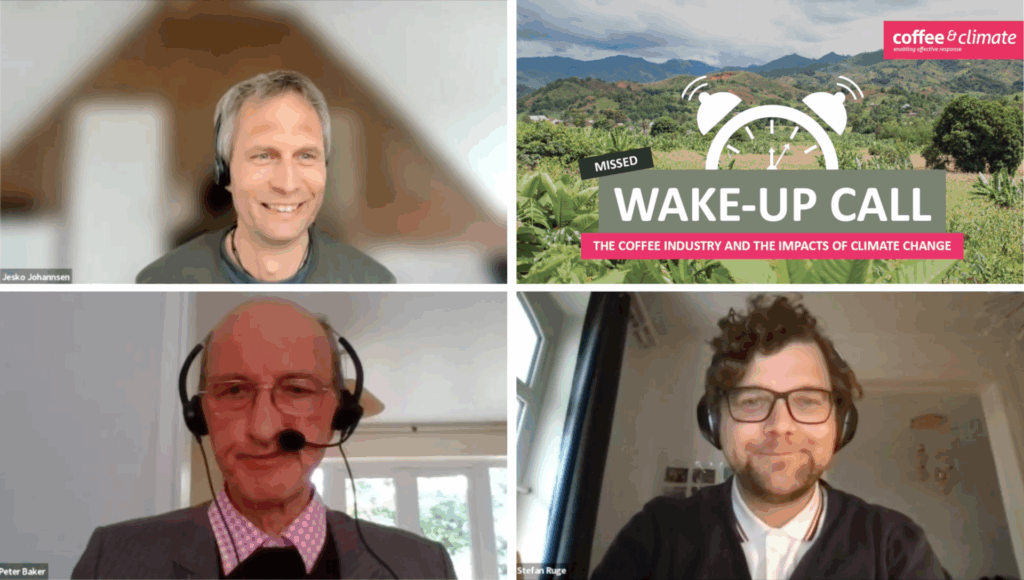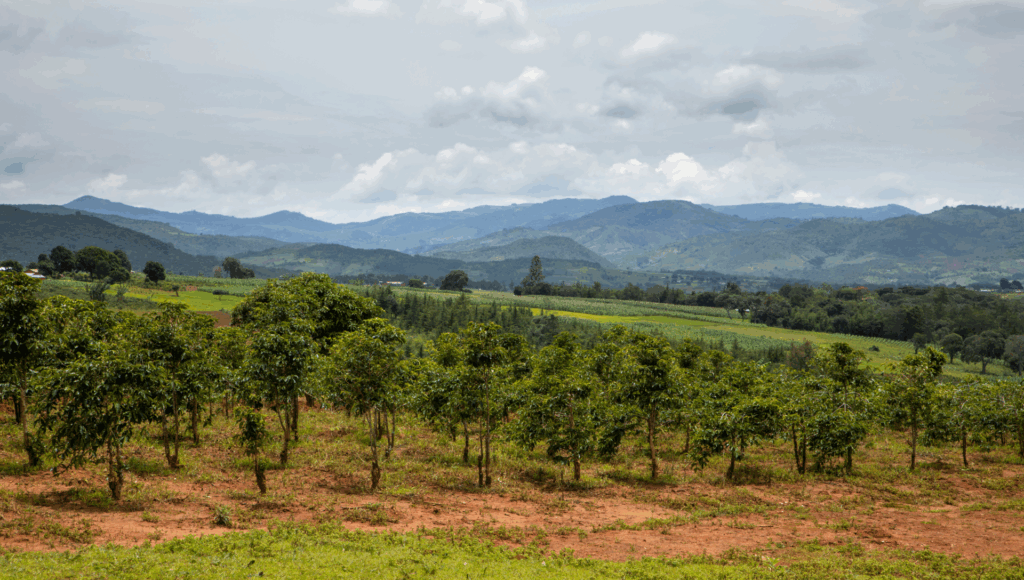“The Coffee Sector Must Join Forces”: Missed Wake-Up Call Webinar Emphasizes Urgency to Act Against Climate Change

“Stop hitting snooze! The alarm clock is ringing!” – Climate change impacts coffee-growing regions more than expected. It requires immediate action. This is the clear message given by climate scientist Dr. Peter Baker and Stefan Ruge, Program Manager Climate at Hanns R. Neumann Stiftung (HRNS). In our webinar “Missed Wake-Up Call”, they showed how climate change threatens the livelihoods of smallholder coffee farmers and drew scenarios of the near future.
There is no realistic chance of staying below 1.5°C anymore”, was the sobering statement by Dr. Peter Baker. Whereas the overall global temperature rise is now 1.1 to 1.2 °C, the global land temperatures are already at 2°C above pre-industrial levels. Baker outlines how the impacts of climate change lead coffee farmers to migrate or diversify out of the coffee business and also threaten their livelihoods through extreme weather events and socio-politic implications. Baker claims that by now, every country should ideally already have a comprehensive climate adaptation and disaster management team assembled, plans developed and under implementation. Only with immediate action, there is a chance to avoid catastrophic impacts on the sector as a whole. However, according to him, efforts of the coffee industry to support farmers so far are often piecemeal and of an inadequate scale:

Especially smallholder coffee farmers will have to deal with the increasing impacts of climate change. That’s why the initiative for coffee&climate (c&c) emphasizes the importance of supporting them to adapt. “It is not about coffee alone, it is about the people and supporting them to become resilient to the changes. The solution is concerted action of the sector in a holistic approach”, emphasizes Stefan Ruge. He is Program Manager Climate at HRNS, which implements c&c.
“c&c follows exactly such a holistic approach: we innovate, disseminate and implement climate-smart tools and practices in coffee production, provides them to coffee farmers and supports these in diversifying their production. In doing so, we supports farming families in six regions worldwide to effectively respond to climate change and to safeguard their livelihoods. c&c’s strategy furthermore includes building up whole climate smart coffee regions and establishing carbon neutral and zero-deforestation coffee supply chains. “There is a lot of work to be done”, says Ruge. “That’s why we encourage coffee companies and development organizations to join c&c. We want to work together to build a climate-friendly coffee sector.”


Watch the webinar recording:
